
Beyond Batten Disease Foundation delivers the largest investment in the history of Batten Research to Texas Children’s Hospital
No treatment. No cure. Fatal. That’s what the parents of six-year old Will Herndon of The Woodlands were told when their son was diagnosed with a disorder that strikes young, otherwise healthy children. Will, now 11, is blind, and the family is heart-broken, but driven to find a cure.
“We are so blessed to live in a community that has passion to believe that even the impossible can become possible if you truly believe change can be made,” said Missy Herndon, Will’s mother and founder of The Will Herndon Research Fund at Beyond Batten Disease Foundation.
Batten Disease is a rare, inherited pediatric neurological disorder, which begins with vision loss and seizures, followed by cognitive and motor impairment. Currently, there is no cure, and the disease is fatal in the late teens or early 20s. This prognosis is unacceptable for Will Herndon’s family and the hundreds of children affected with this condition. Beyond Batten Disease Foundation (BBDF) supports research to treat and cure Batten disease that strikes young otherwise healthy children around the age of five.
Missy and Wayne Herndon, Will’s parents, jumped into action after receiving the devastating news about their son. They partnered with Beyond Batten Disease Foundation to raise funds from generous donors in The Woodlands, the Houston area and Texas. Ultimately, these contributions and others have resulted in the largest investment in the history of Batten Disease research in the United States to Texas Children’s Hospital.
“I am so grateful for the tremendous support we have received from the families of The Woodlands and beyond. Our success is a testimony to the resources; love and faith each of them have shared since day one of Will’s diagnosis. There is no doubt in my mind this community is committed and a life-changing discovery will happen,” said Missy Herndon.
Craig and Charlotte Benson of Austin created Beyond Batten Disease Foundation in 2008 after their daughter, Christiane, was diagnosed with Batten disease. In 2009, Wayne and Missy Herndon launched The Will Herndon Fund as part of the Foundation in honor of their son. The Fund’s mission is simple; SAVE WILL and the hundreds like him, and in the process create promising treatments for so many other neurodegenerative conditions.
Mrs. Herndon presented a check from the Foundation to Texas Children’s Hospital for $1.75 million. The money will go to the Jan and Dan Duncan Neurological Research Institute at Texas Children’s Hospital. This follows another $2.5 million dollar gift in 2009 from Jim and Cherie Flores and Beyond Batten Disease Foundation. The grants totaling $4.2 million dollars are the largest investment ever made in the history of Batten research. The money allowed a team of researchers from Italy to come to Texas Children’s to conduct research. The researchers have identified six potential drug compounds that are currently in testing. The $1.75 million from the Foundation will support the critical steps necessary to eventually translate basic research into future clinical trials, ultimately to treat children in a race against time for their lives.
“We are profoundly grateful that the Beyond Batten Disease Foundation has chosen to support Batten disease research at Texas Children’s,” said Dr. Huda Zoghbi, director of the Jan and Dan Duncan Neurological Research Institute at Texas Children’s. “Children like Will Herndon and Christiane Benson are the inspiration for accelerating discoveries about this devastating disorder, and this next phase of research is a critical step in that process.”
The Herndons spoke for the first time to the Houston media last week about the disease that strikes children that formerly ran, laughed and sang. View KHOU coverage.
The Herndons hosted the 6th Annual HOPE Under the Stars event in The Woodlands to help fund the research to find a cure. The celebration honored the amazing support of The Woodlands community and announce the new grant at Texas Children’s Hospital featuring the most promising research in the history of the disease.




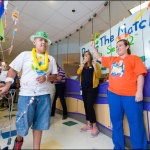
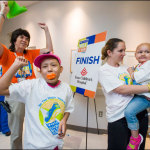
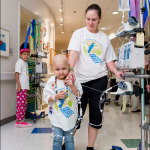
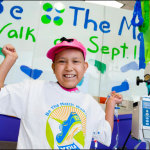

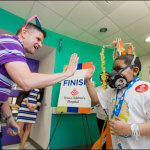





 “Improving neonatal outcomes is what our Newborn Center is all about,” said Texas Children’s chief of Neonatology Dr. Stephen Welty. “We use a collaborative, interprofessional approach to deliver high-quality care to our NICU patients, which include premature infants as well as full-term babies with complex medical diagnoses.”
“Improving neonatal outcomes is what our Newborn Center is all about,” said Texas Children’s chief of Neonatology Dr. Stephen Welty. “We use a collaborative, interprofessional approach to deliver high-quality care to our NICU patients, which include premature infants as well as full-term babies with complex medical diagnoses.”